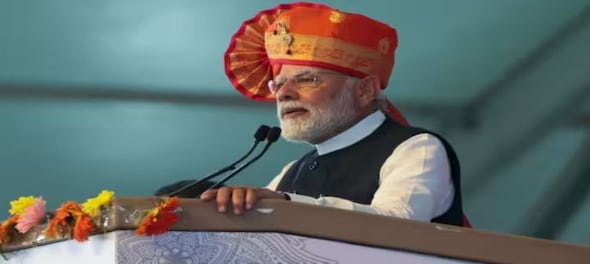
Four years and three months after Parliament passed the Citizenship Amendment Act, PM Narendra Modi government's decision to notify its Rules allowing grant of citizenship to six sections of people from Afghanistan, Bangladesh and Pakistan brought back the issue on the front burner.
The basic touchstone is that six communities – Hindus, Sikhs, Buddhists, Jains, Parsis and Christians – who faced persecution in these countries of residence and sought shelter in India can be rehabilitated and granted citizenship. The cut-off date is the end of 2014 and the aim is that these people can now aspire to lead a life with dignity and protect cultural, linguistic and social identity.
A debate and discussion around elections is natural since the country is preparing to elect a new government at the Centre and an issue of this nature that already witnessed mass protests including a prolonged sit-in in Delhi reignited the political debate from either side of the aisle.
For instance, soon after the Act was passed and notified, Shaheen Bagh area in Northeast Delhi became an epicentre of sit-in protests that continued for over three months. The largely peaceful nature of resistance terminated after the Covid-19 pandemic that led to nationwide lockdown.
That the government remains sensitive to criticism can be gauged from the arguments advanced to dispel negative perceptions around the Act. The thrust of this was that the new law will only grant and not take away citizenship of any Indian citizen; and that the Constitution allows grant of fundamental rights to those people who face religious persecution. The apprehension is the Act which does not specify Muslim community can create hurdles. Denizens of Assam and West Bengal remain wary of what the provision can translate into for thousands of immigrants who came there from neighbouring countries.
On the part of the Bharatiya Janata Party its leadership reminded the people that the Modi government implemented promises offered ahead of the last general elections. The governing party is entitled to tick the boxes of promises and return to the electorate on efficacy and high percentage of promises kept. Yet, there is bound to be a flip side and the Opposition too is within its rights to build a counter narrative and go through the provisions with a discerning eye.
The Opposition leaders, whether in the I.N.D.I Alliance or not, have already expressed views underscoring the perceived sub-script. Congress leader Jairam Ramesh, Tamil Nadu Chief Minister M K Stalin, his Delhi counterpart Arvind Kejriwal and AIMIM president Asaduddin Owaisi remained convinced that the notification of the Rules was done by the BJP-led government with just one objective – the Lok Sabha elections. These leaders interpret the Act and its Rules can lead to polarisation in the society and when combined with the proposed National Register of Citizens, has the potential to accentuate the division.
On her part, West Bengal Chief Minister Mamata Banerjee decided to go through the Act/Rules with a fine comb before taking a call on its applicability in the state, her party governs while Kerala Chief Minister Pinarayi Vijayan rejected the idea of implementing the new law and its applicability in the state.
The Trinamool Congress apprehends the Act will affect the minorities and Muslims in the State as well as Assam, something to which the Congress Chief spokesperson Jairam Ramesh alluded to in his post on social media. Several states – Chhattisgarh, Kerala, Madhya Pradesh, Punjab, Rajasthan, West Bengal, where parties opposed to the BJP are/were in government, Assemblies there passed resolutions against implementing the Act, urging the Central government to recall the amendments.
On the other hand, the BJP and its supporters too joined the issue. The focus is on the historical blunders committed by leaders of earlier eras and how the decisions made back then were inappropriate. What is missing is the context in which leaders of the era took a call, with those opposing the decision finding adequate space in the debate recorded in Parliament. Rhetoric and bluster in elections is expected but what is important is that the electorate with patience lends an ear to contrary and diverse opinions. Hear the best of arguments, reason it out with a sense of detachment and take an informed view on the overall effect of the law not be driven by emotions.
—The author, K V Prasad, is an author and political analyst. The views expressed are personal.
Read his previous articles here
(Edited by : C H Unnikrishnan)
Check out our in-depth Market Coverage, Business News & get real-time Stock Market Updates on CNBC-TV18. Also, Watch our channels CNBC-TV18, CNBC Awaaz and CNBC Bajar Live on-the-go!


Supreme Court dismisses plea seeking postponement of CA exams; details here
Apr 29, 2024 2:29 PM
Just 8% women candidates contested first two phases of Lok Sabha polls
Apr 29, 2024 12:00 PM
The sexual assault case against Prajwal Revanna — here's what we know so far
Apr 29, 2024 11:36 AM
Repolling underway at one polling booth in Chamarajanagar LS segment in Karnataka
Apr 29, 2024 10:32 AM

